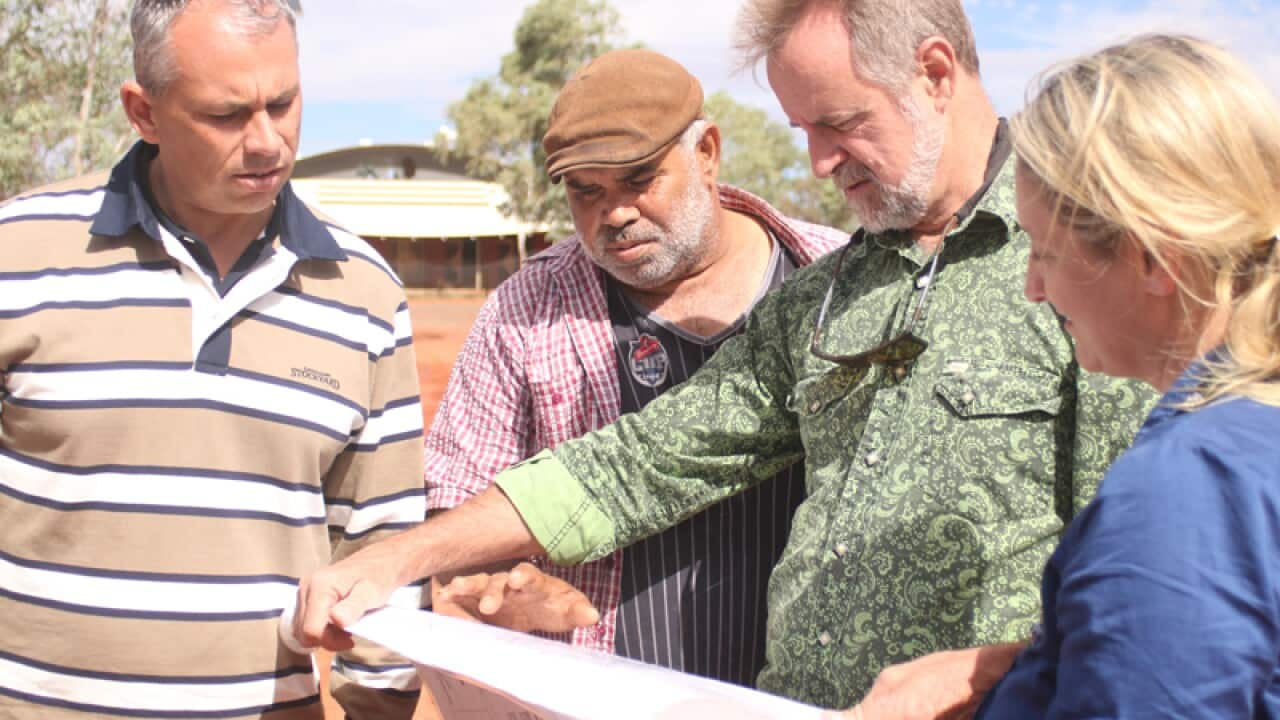This year marks ten years since the Howard Government rolled out its intervention in the Northern Territory, prompted by allegations of child abuse.
Now, a decade on, the government has admitted the tough regime was flawed.
Minister for Indigenous Affairs, Nigel Scullion, told reporters in the remote community of Mutitjulu, located at the eastern base of Uluru, consultation with Aboriginal people should have occurred.
"I think it would have been far better to do some of the same things with the full compliance of the community, rather than the community having the sense that it was imposed on us, so yes of course we could have done it better," he said.
"Hindsight is very easy if you've got it, but we learnt the lesson years ago that communities have to be front and centre."
The Northern Territory Intervention was launched in 2007. It saw government seize control of Aboriginal lands.
The controversial policy saw the Racial Discrimination Act suspended, and the army and federal police were sent into many communities. Welfare money was quarantined and alcohol and pornography were banned.
Continue reading

10 impacts of the NT Intervention
The Intervention was supposedly an emergency response to the NT's Little Children are Sacred Report which included allegations of widespread child sex abuse in Aboriginal communities across the territory.
Then Prime Minister John Howard justified the special measures by saying drastic action was needed.
"It is interventionist, it does push aside the role of the Territory to some degree, I accept that, but what matters more, the constitutional niceties or the care and protection of young children?" he said in 2007.
It was a move that spread fear and uncertainty through more than seventy communities.
Labor MP Pat Dodson recalls the terror felt throughout the region.
"It was a scary time. People really thought there was something like an invasion happening," he told NITV News.
"I was in the Nothern Territory. I was coordinating consultations around moving from councils and associations to shires, turning up in communities, the police, the army, people in disarray, people horrified at what was happening to their lives. I don't think much has changed since then and it's really destroyed a lot of the leadership," he said.
Greens Senator Rachel Siewert was with a group of Aboriginal women from Central Australia at Parliament House at the time the intervention was announced.
"Sitting with them and sharing their distress, tears rolling down their face because they knew what the intervention would mean," she told NITV News.
"The talk of army rolling into their communities, prescribed communities, income management, taking over control of community decision-making, putting in general business managers in each of those communities, they knew what impact it would have."
Clare Martin was the Chief Minister of the Northern Territory at the time. She told Sky News the Intervention was a political stunt.
“I was stunned. I had no idea it was going to happen. I don’t think most people in the Territory — Aboriginal people who were the subject of it — they didn’t know it was going to happen, and very quickly you worked out it was mostly a political stunt,” she said.
Ms Martin says there was no consultation with her when the intervention was rolled out.
"[Then Prime Minister John Howard] didn’t ring me to say ‘can we talk about a possible intervention’, he rang me and said ‘there is an intervention taking place, I’m not going to talk to you about it, and it’s a done deal’,’ she told Sky News.
While the results of the Intervention have been predictably poor, the controversial policy has remained under both successive Labor and Coalition governments.
The intervention is estimated to have cost taxpayers more than one billion dollars
Rachel Siewert says the funding could have been used more effectively.
"Imagine what we could have done with $1.3billion over that time. I think of justice reinvestment, I think of better wrap-around support services, I think of addressing the out-of-home care for Aboriginal children in the Northern Territory. All of those things could have been better addressed," she said.
Now, a decade on, both sides of politics say they agree the voice of First Australians needs to be respected.
Nigel Scullion says it's important for Indigenous people to be consulted.
"Aboriginal and Torres Strait Islander people, community, families have to be at the centre of the decisions, if we're going to make substantive and sustainable change," he said.
Labor MP Warren Snowdon says Aboriginal people have said enough is enough.
"We want to control our own destiny you need to talk with us, work with us not do things to us," he said.













